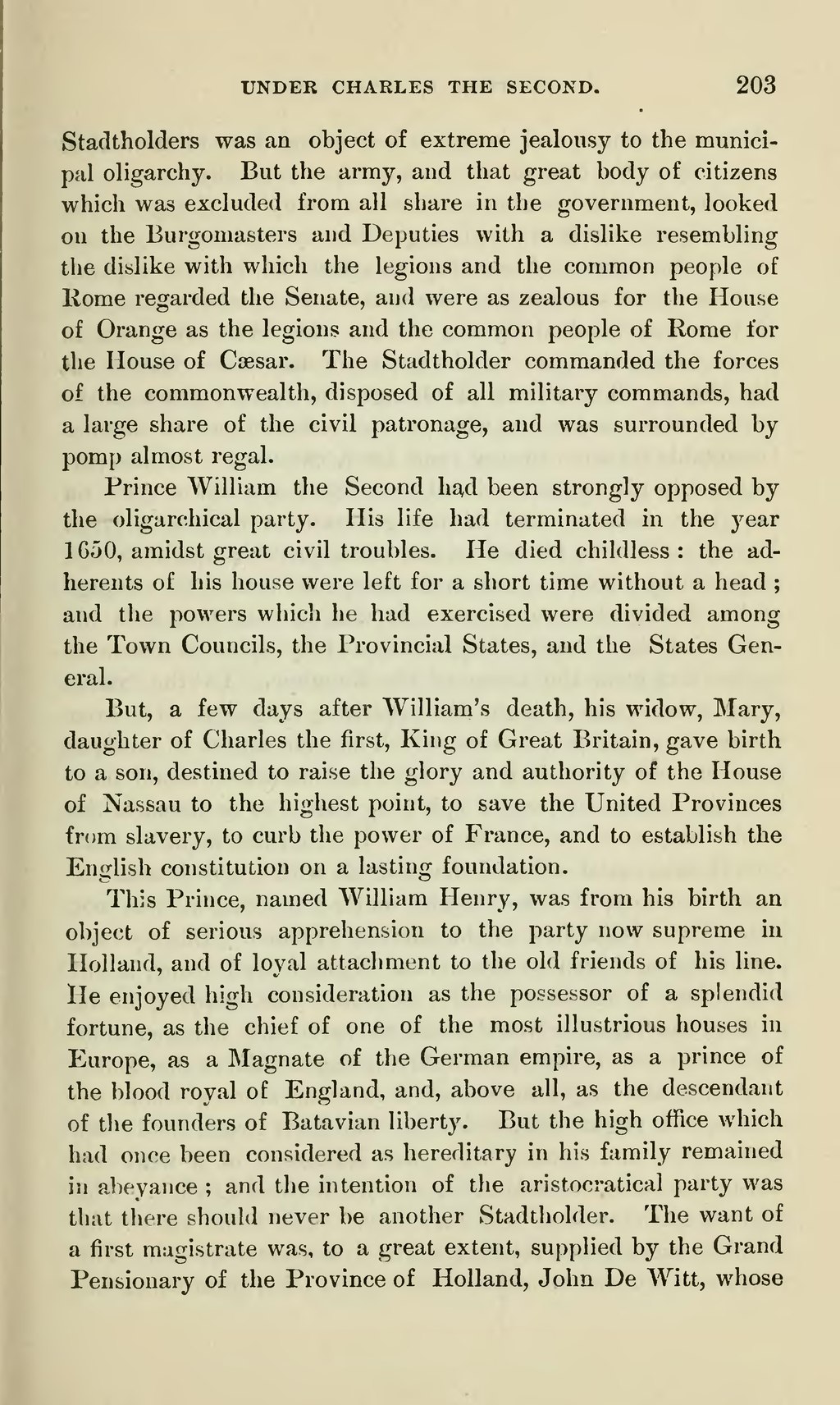Stadtholders was an object of extreme jealousy to the municipal oligarchy. But the army, and that great body of citizens which was excluded from all share in the government, looked on the Burgomasters and Deputies with a dislike resembling the dislike with which the legions and the common people of Rome regarded the Senate, and were as zealous for the House of Orange as the legions and the common people of Rome for the House of Cæsar. The Stadtholder commanded the forces of the commonwealth, disposed of all military commands, had a large share of the civil patronage, and was surrounded by pomp almost regal.
Prince William the Second had been strongly opposed by the oligarchical party. His life had terminated in the year 1650, amidst great civil troubles. He died childless: the adherents of his house were left for a short time without a head; and the powers which he had exercised were divided among the Town Councils, the Provincial States, and the States General.
But, a few days after William's death, his widow, Mary, daughter of Charles the first, King of Great Britain, gave birth to a son, destined to raise the glory and authority of the House of Nassau to the highest point, to save the United Provinces from slavery, to curb the power of France, and to establish the English constitution on a lasting foundation.
This Prince, named William Henry, was from his birth an object of serious apprehension to the party now supreme in Holland, and of loyal attachment to the old friends of his line. He enjoyed high consideration as the possessor of a splendid fortune, as the chief of one of the most illustrious houses in Europe, as a Magnate of the German empire, as a prince of the blood royal of England, and, above all, as the descendant of the founders of Batavian liberty. But the high office which had once been considered as hereditary in his family remained in abeyance; and the intention of the aristocratical party was that there should never be another Stadtholder. The want of a first magistrate was, to a great extent, supplied by the Grand Pensionary of the Province of Holland, John De Witt, whose
